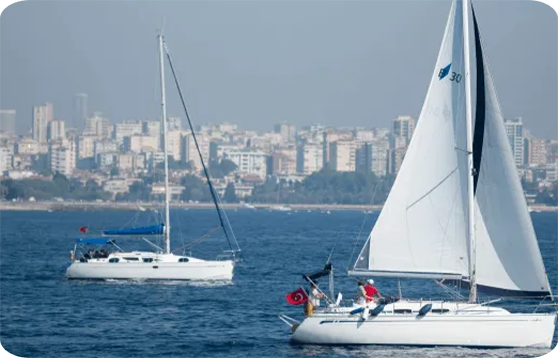Why Use Jade Boat Loans?
Cheap boat loan interest rates
Your Jade Boat Loans consultant is only focused on your interests and has the skills and industry experience to know who will offer the best rates on your particular loan specs.

Using Jade is the right decision
Jade Boat Loans is the broker that specialises in leisure and watercraft finance and can source you the best loan.
A company that delivers
Your Jade Boat Loans consultant is only focused on your interests and has the skills and industry experience to know who will offer the best rates on your particular loan specs.
Enjoy the cheap loan rates in Gold Coast
A person’s boat loans on the Gold Coast differ in requirements based on the customer’s needs. We are happy to explain the many parameters regarding the marine loan. We provide a highly the best variety of credit for marine, subject to loan approval.
Supplying finance in the Gold Coast region for many years regarding various kinds of boat loans products and solutions. New boat financing buyers, low rate good credit and simpler approval bad credit water craft finance. Business and personal use loans about the Gold Coast and Queensland area.
Jade is aware that you might want a low rate boat loans option without delay today and will help you choosing a marine loan package which makes it all possible.

Marine Financing Products and Solutions
- No Deposit Loans for Sailboats and Houseboats
- Financing Options for Large Marine Vessels and Small Boats
- Jet Ski Loans
- Comprehensive Options for Both Commercial and Consumer Boat Loans
Boat Loans Gold Coast FAQs
Taking on any form of finance is a major move for most people and it should be considered in detail and with all concerns, questions and doubts covered. We have attempted to include extensive and comprehensive coverage of many topics throughout our web content and add to that with these FAQs. If you have any additional questions, our consultants are readily available to have a discussion with you on 1300 000 003 or via an online enquiry form.
-
No. A marine broker is an individual or a business that operates as a third party or middle man to source craft on behalf of buyers or to sell vessels on behalf of sellers. The prime role and occupation of the marine broker is the process of buying and selling. Some will have a dockside office where sellers can leave vessels on consignment to sell. Others will be located elsewhere and focus on sourcing on behalf of buyers. The role of a finance broker is to source finance and loans on behalf of customers. They provide a range of services including sourcing quotes from across the lenders they work with, negotiating on terms, structuring loans and liaising between borrower and lender to settle the contract and finalise the financing. Highly-regarded brokers will have many accreditations which provides them with greater choice in sourcing the cheapest lending. Brokers may specialise in certain areas and those with expertise in marine finance would be seen as best-placed to assist.
-
Applying for a personal loan or business finance is quite a simple process. Most lenders will offer both online application forms and apply over the phone services. You will need to have a range of details, information and documentation to form part of the application. For personal loan applicants, you will need to be over the age of 18 years, have ID, employment or a source of income and provide details of: residential status and history; current and past employment; assets and property that you own; debts and monies you own on loans, credit cards and for other purposes; details of regular monthly/weekly expenses; and other information. If you have already committed to a specific vessel, you will need to provide the details of the purchase including the seller. An invoice from the seller with specific details of the goods being purchased will be required in order for the lender to affect settlement.
-
Yes. Finance is available for online purchases. This would include purchases made online through a marine dealer, a wholesaler, a manufacturer or direct from a private seller. While most large, new vessels would be purchased following in-person inspection and usually involved direct contact with the dealer, the purchase of smaller craft such as PWCs, wake craft and tinnies could be facilitated completely online. If sourcing finance through a broker-style lender, assistance can be provided to verify ID of private sellers, check the PPSR to ensure there are no encumbrances and other checks. If purchasing any goods online, buyers should follow precautions and should check the latest updates from the ACCC in regard to current scams and fraud schemes. In buying any vessel, it is always advisable and preferable to have the opportunity to inspect the goods in person and possibly engage a marine engineer or surveyor to carry out a condition report prior to purchase.
-
Loans are available for vessels used in all types of waterways, both inland as well as coastal and offshore. A application includes details of the personal applying including their financial capacity as well as details of the goods being acquired. The approval process focuses on the ability of the borrower to repay the finance and the assessment of risk associated with financing in regard to the amount being requested, the term requested etc. Where a vessel will be operated would not normally be considered of major relevance to the loan itself. It would be relevant to registration and insurance and also the capabilities of the vessel to handle the conditions of other waterways. Vessels are rated by Australian design standards for suitability for certain water conditions and to capacity to carry a maximum number of persons and/or weight. In taking on finance and insurance, the responsibility would be on the owner to comply with regulations.
-
In general terms, yes. All types of marine vessels and watercraft are, in principle, eligible for both personal loans and commercial marine finance. That would include vessels to be used in competitive environments or for competition activities. For private buyers, a secured loan is the most popular type of lending as it covers all types of vessels to be used in a wide range of activities including marine racing. If a buyer does not choose to offer the goods as security against finance or if the lender does not accept a particular craft as suitable security, unsecured personal financing may be suitable for the buyer. This is a more general type of lending as no security is offered, so the use of the goods being purchased would not possibly form a significant part of the loan application. The use of a vessel will be pertinent to the insurer and insurance is required when buying goods under finance.
-
When approving a loan application, lenders will assess the capacity of the applicant to service the debt being requested. This entails a risk assessment and review of current assets and liabilities, income and outgoings. Existing loans are included in the assessment. Having an existing marine finance would not in itself preclude an individual from being approved for another loan for another vessel. For example, a person with a cruiser or yacht under finance may be looking to purchase a tender, PWC or tinnie. A family may be looking for a craft for fishing as well as one for general water activities. If the applicant meets the guidelines of the lender then it is certainly possible. If the applicant has a good credit history of loan repayments over a significant period, this can increase their credit score.
-
In the contemporary business environment, many finance providers have moved to online platforms to deliver lending services to customers. Most lenders will offer an online application form and electronic exchange of documents. So the lending application and approval process can be undertaken completely via a contactless or remote method. In some cases, phone conversations will be preferred by lenders and some may request face time or online interview times to verify certain details from the applicant. Some banks may still request that loan applicants attend a loan interview in a branch or to attend a branch to hand in documents, but this practice is being phased-out quite widely. During the COVID-19 pandemic, the suitability of contactless engagement and delivery of services became essential and standard operating procedure for many businesses and this has continued. Legislation covers the electronic exchange of documents and signing of lending contracts. Approved and licensed lenders are required to follow best practice and adhere to regulations as set out by the law especially in regard to fraud and money laundering activities.
-
When taking on marine finance, borrowers are also required to take out appropriate insurance coverage. Vessels also need to be registered in the home state or territory of the owner. The costs of both these elements will vary depending on the type of craft, how and where it will be operated, for recreational use only or a commercial business vessel and on the jurisdiction. In some cases the costs of insurance and registration may be included in the finance deal and in some cases this is not possible. If the vessel is already registered which should be the case if purchasing second hand, the buyer and seller will need to execute a transfer of registration with the appropriate fees applying, This normally would occur post-finalising the loan and therefore not be included. If buying a new craft, it would depend if the dealer includes registration in the purchase price or if it is left for the buyer to handle this post-sale. With insurance, often a cover note may be sought to cover the initial 14-30 days after purchase to allow the buyer sufficient time to obtain a full policy. To be included in a loan deal, items need to be acquired concurrently with the craft. These matters can be discussed with the lender and resolved on an individual basis.

